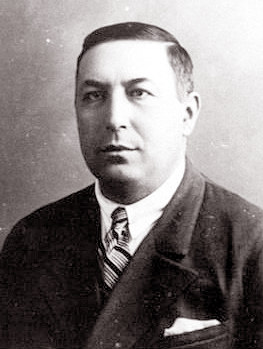Rubinstein (from www.chessgames.com)
I recently bought Donaldson and Minev's book "The Life and Games of Akiva Rubinstein volume 1" which is more games than life, but still has some interesting biographical and anecdotal details. The book is ordered chronologically and is peppered with crosstables and photgraphs. Of course, the games themselves are important and many have notes to them, often from contemporary sources.
It appears that 1907 was a breakthrough year for Rubinstein with big victories at Ostend and then at Carlsbad. His very first game at Ostend saw the young and relatively inexperienced Rubinstein playing gainst the grand old master, Joseph Blackburne. Rubinstein played solidly, but played a poor move allowing Blackburne to take the game into a very good king and pawn endgame. At that point, Rubinstein is probably lost, but he starts to set Blackburne difficult tasks and finally comes away with a draw.
Rubinstein as black played 42..Qg5 but keeping queens on would have been better. After 43.Qxg5 hxg5 44.Kd2, Rubinstein starts to step up.
Black is worse, but it is still important to find the best move. 44..g6! 45.h6? 45.hxg6 was better and probably winning, but both sides would promote at the same time which probably put Blackburne off. He also may have miscalculated the resulting position as white would have 2 connected passed pawns in the queen ending.
Now the obvious capture 45..Kxh6 fails to 46.g4 so Rubinstein here played 45..g4! and it is no longer easy to win this position for white. In fact the best he can hope for is a queen ending with 2v1 pawns though they would all be passed and black's single pawn may be the most advanced. Not at all easy to win.
Loading embedded chess game...





No comments:
Post a Comment